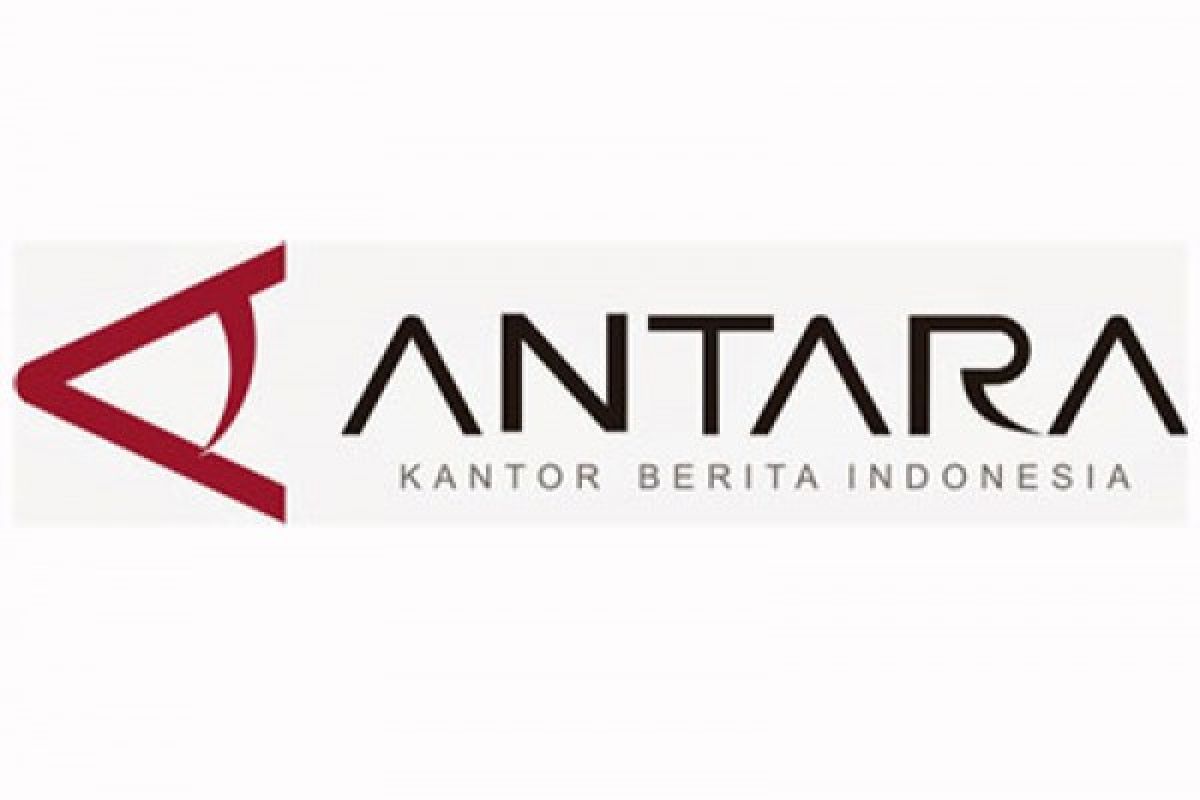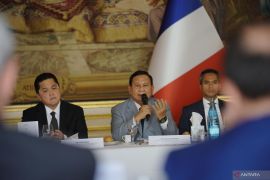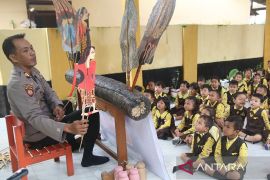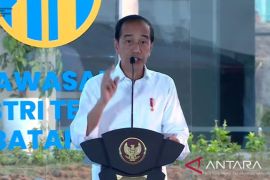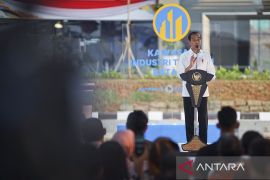"In the context of employment, the blue economy concept is expected to increase workers` productivity and create jobs," the Manpower Ministry`s expert staff . Abdul Wahab Bangkona stated.Jakarta (ANTARA News) - As a model of sustainable development that concerns the use of the coastal and marine ecosystem, the blue economy concept as one of the main components of President Joko Widodo`s maritime vision can help improve employee productivity and job creation.
The maritime policy of President Joko Widodo (Jokowi) aims to reinvigorate Indonesia`s maritime identity, manage the country`s marine resources, strengthen the maritime defense capability, intensify maritime diplomacy, and improve inter-island connectivity.
Hence, there is a need for action and support from all parties to optimize this blue economy so that all resources can provide added value and give better results.
During his speech at the International Conference on Blue Economy for Sustainable Development in Jakarta recently, the Manpower Ministry`s expert staff of international relations, Abdul Wahab Bangkona stated that the blue economy is the development of green economy principles whose context focuses on high and massive productivity, and sustainable resource optimization.
With the sustainable resource optimization in the blue economy concept, Wahab explained that all resources should provide added value with better results.
"In the context of employment, the blue economy concept is expected to increase workers` productivity and create jobs," he remarked.
Globally, Indonesia is the second largest producer of marine products with its aquaculture sector produces more than four million tons per year.
It also contributed significantly to Indonesia`s national gross domestic product and absorbed 4.1 per cent of the country`s total workforce.
To support the blue economy concept, Wahab noted that there must be systematic regulation that can be easily applied, and clear standard rules.
In the meantime, the inventor of blue economy concept, Gunter Pauli, said Indonesia as a waters country has great potential because it has enough sunlight.
In light of this, Pauli explained that the public should be aware of this great potential and make inventory of all the opportunities that exist, then focus on the application of the blue economy.
According to him, the blue economy concept is sustainable and environmentally friendly because all the waste can be processed.
In addition, the blue economy concept is easier to implement because it is cheaper so it can be applied in home industry.
President Jokowi`s predecessor Susilo Bambang Yudhoyono first signaled Indonesia`s interest in the blue economy concept at the UN Conference on Sustainable Development in 2012.
The concept appealed to Indonesia`s desire to develop its domestic marine and fisheries sector in a way that supports the goals of sustainable development with minimal environmental impact and zero carbon emission.
Indonesia has also demonstrated its commitment to the sustainable use of marine resources through engagement in regional forums such as the Indian Ocean Rim Association (IORA).
The concept of blue economy development was highly recommended and discussed at the second IORA meeting in Jakarta in May 2017.
The ministerial meeting of IORA member countries and IORA Dialogue Partners at the time was a follow up of the IORA Summit held in Jakarta in March.
At the meeting, the IORA member countries were urged to jointly work in implementing the blue economy.
The meeting was held in three sessions, namely working session, senior official meeting, and ministerial meeting.
Five issues discussed at the meeting included fisheries and aquaculture, inter-port cooperation, customs cooperation, maritime tourism, and marine plastic wastes.
The main purpose of the event was to strengthen the influence of the Indonesian diplomacy in the countries of the Indian Ocean region.
The Indian Ocean stretches from Africa, Asia to Europe, and has an economic potential, but no organization can manage this potential properly.
Moreover, the economic imbalance has occurred among member countries due to low economic growth and conflict.
With its influence, Indonesia can play a bigger role to help realize the political stability and security through various forms of cooperation.
In addition, Indonesia has also called on global community to pay serious attention to marine resources by adopting the concept of blue economy.
The concept could be realized by changing the direction of development policies to keep the balance between economic growth and environmental conservation.
The blue growth initiative was one of the ways to preserve marine and fishery resources in a sustainable manner to increase income and open job opportunities for the people.
The blue growth initiative which is incorporated to the institutional framework of sustainable development by strengthening the pillars of natural resources and action plans was agreed upon at the Voluntary Global Alliance meeting held in Jakarta in September 2014.
At the meeting the global alliance declared Indonesia as the axis of the global blue growth.
In addition, the alliance was also of the view that Indonesia had played an active role in international forums by taking strategic steps to start concrete actions with regard to blue growth fundamentals.
(T.O001/A/KR-BSR/A/H-YH)
Reporter: Otniel Tamindael
Editor: Heru Purwanto
Copyright © ANTARA 2018
